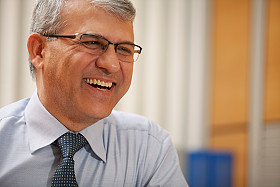
3 Easy Steps to Qualifying an Expert in Any Subject
How do you know that someone has the right expertise for your situation if you don’t know their field? When I do market research to help a company find new markets, I need to quickly find the experts with the right knowledge. This kind of market research is tricky: information on unmet needs is only found in the brains of people, not on the web. The wrong expert might identify needs that have already been met by another solution or see as universal a need that is very limited.
A few universal questions can help you decide without requiring any specific knowledge on your part.
Step 1: Why Would You Recommend This?
First, ask the individual for a recommendation between two choices, and ask to explain why. Do not worry about knowing the right answer, as how the question is answered is more revealing. You want someone who knows not only what applies to your case, but why.
Good answers include:
- “Option A because…”
- “That is not quite the right question because… A better question would be…” The expert demonstrates not just knowledge of the topic, but an ability to discern what matters from what does not.
- Specific questions about your objective and your circumstances: they demonstrate that the expert does not just have “one size fits all” answers that are bound to be wrong sooner or later.
Step 2: When Would You not Recommend This?
To further confirm expertise, follow up with a second question: “What would make you give a different answer?” or “Under what circumstances would the other answer be the right one?”. This second question confirms that the expert has enough breadth of knowledge on his topic to know the why.
Step 3: Establishing the Limits of the Expert’s Knowledge
Some experts are experts only in a sliver of their fields, while others have broad expertise that allows them to ply their craft in a wide range of settings. To establish which applies, ask this last question: “In what area do you consider yourself not an expert?” Typically, a strong or at least honest expert will list an aspect he is familiar with but not truly expert by comparison to other areas of knowledge. If the answer is a variation of “I know this whole field”, be wary and probe further: this answer could identify truly comprehensive expertise or someone who does not know his/her limitations.
If you struck out with your current candidate, you might ask what kind of expert he would recommend.
